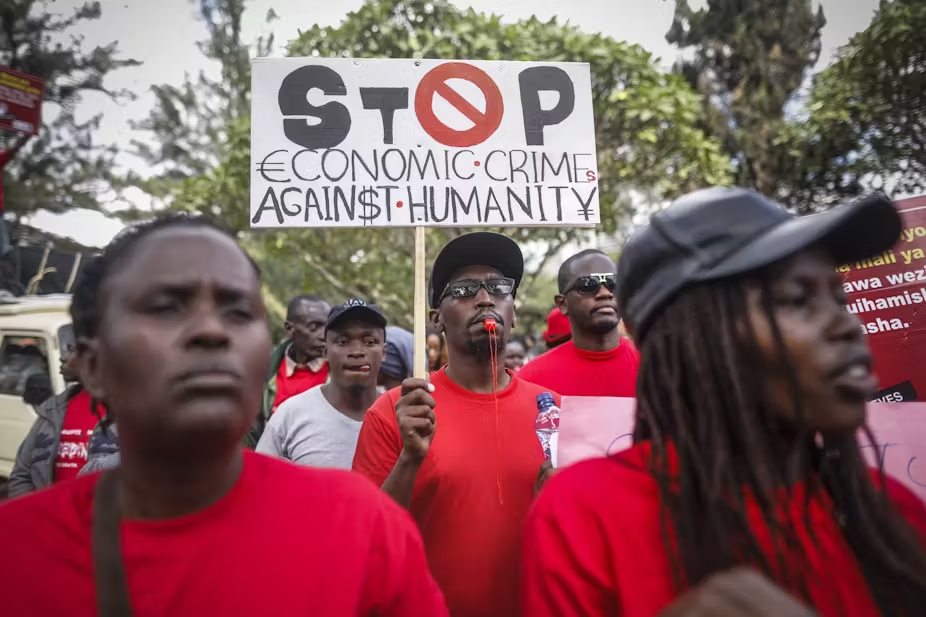Kenya’s government has formally requested the International Monetary Fund (IMF) to conduct an official assessment of its corruption and governance issues, according to sources familiar with the matter. This move follows pressure from Western nations and aims to address concerns over whether governance vulnerabilities and corruption are undermining the country’s financial stability and revenue generation.
The request seeks the IMF’s “governance diagnostic,” a specialized assessment that examines a country’s susceptibility to corruption and the effectiveness of its governance structures. The diagnostic will investigate how corruption and weak governance practices could be draining public resources or contributing to fiscal inefficiencies. IMF spokesperson Julie Kozack confirmed the development during a press briefing in Washington, stating that the IMF has consistently encouraged Kenya to engage in such a review.
“Promoting good governance remains an essential part of the IMF’s engagement with the Kenyan authorities,” Kozack remarked. While the assessment is not directly tied to financial disbursements, it is viewed as a goodwill gesture that demonstrates the government’s commitment to addressing corruption and putting its financial situation back on track.
Kenya has been grappling with rising public debt, which has reached precarious levels in recent years. The situation worsened after deadly protests in June forced the government to withdraw proposed tax hikes aimed at improving revenue collection. The protests were largely driven by public outrage over perceived government waste, corruption, and the rising cost of living. The withdrawal of the tax proposals also complicated Kenya’s efforts to unlock a $600 million disbursement from the IMF as part of its broader financial support package.
One source indicated that while the governance diagnostic is not a condition for IMF funding, it will serve as a positive signal to the international community that Kenya is serious about reforming its governance and tackling corruption. Such an effort could enhance the country’s standing with international lenders and help stabilize its financial outlook.
In recent years, Kenya has been under increasing scrutiny from both domestic and international observers over its handling of public funds, with accusations of government corruption and mismanagement of resources being major concerns. The June protests, which turned violent and resulted in multiple deaths, reflected deep-seated frustrations among Kenyans who feel that corruption is siphoning off public funds and exacerbating the country’s economic difficulties.
The IMF’s governance diagnostic is a tool designed to assess governance and anti-corruption frameworks, focusing on areas such as fiscal governance, public financial management, and anti-corruption measures. Kenya’s finance ministry has not yet responded to requests for comment on the development, but the diagnostic is expected to examine the broader economic environment, highlighting vulnerabilities that could hinder sustainable growth and financial recovery.
According to reports, Western nations, including key development partners, have been urging Kenya to request the IMF’s assessment as part of a broader push to encourage reforms and strengthen governance. The United States, in particular, has been vocal in its support for increased transparency and anti-corruption measures in the East African nation.
Kenya’s ongoing financial struggles, coupled with its debt burden, have raised concerns about the country’s ability to meet its financial obligations. The IMF has been a critical partner in Kenya’s efforts to stabilize its economy, offering financial support through loans and disbursements contingent on economic reforms.
As the governance diagnostic moves forward, the international community will be closely watching Kenya’s response to the findings and recommendations from the IMF. The assessment could pave the way for more comprehensive reforms that address corruption and governance issues, but the process is expected to face challenges given the entrenched nature of these problems within the country’s political and economic landscape.
For now, Kenya’s government is signaling its willingness to confront corruption and governance vulnerabilities as part of its broader efforts to regain financial stability and restore public trust. The outcome of the IMF assessment will be crucial in shaping the country’s path toward sustainable economic recovery.



